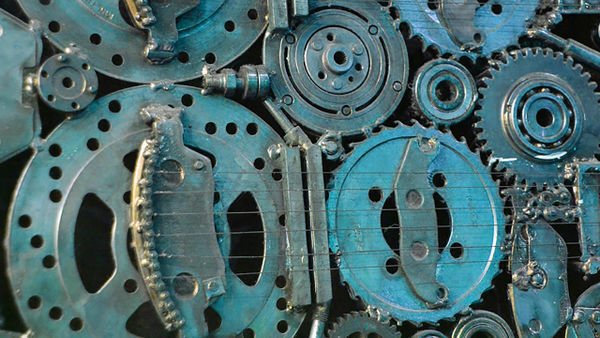Annual Applied Complexity Network and Board of Trustees Symposium: The Emerging Frontiers of Invention: Difference between revisions
From Santa Fe Institute Events Wiki
No edit summary |
No edit summary |
||
| (One intermediate revision by one other user not shown) | |||
| Line 9: | Line 9: | ||
<br> | <br> | ||
[[Image:Gears-cyan-2.jpg| | [[Image:Gears-cyan-2.jpg|600px|{border}]] <br> | ||
'''November 9 - 10, 2018<br />''' | '''November 9 - 10, 2018<br />''' | ||
''' | '''Inn and Spa at Loretto''' | ||
Invention is an activity of great uncertainty, greater interest, and overwhelming significance. The progress of life and civilizations can be told through the lens of inventions, and in culture, their inventors and supporters. From the evolution of life and ecosystems, to the invention of writing and mathematics, water clocks to atomic clocks, calculators to computers, and monarchies to democracies. | |||
We believe that just as Darwin’s theory describes evolutionary processes giving rise to invention and innovation in biology, so too might a complexity theory of invention and innovation describe the emergence and survival of novelty across the technological, social, economic, and biological domains. | |||
A useful distinction is that between invention and innovation. Invention is the creation of something new, while an innovation is a successful invention -- a transformative variety of newness. Both are essential for evolutionary processes, and each is influenced, modulated and controlled by a variety of distinct individual, collective, and cultural factors. We seek to isolate and analyze these factors, searching for new ideas and mechanisms that could lead to the acceleration of invention and the control of innovation. | |||
Registration is open to SFI Applied Complexity Network members and invited guests only. Please contact action@santafe.edu for registration information or to learn how to become a Santa Fe Institute Applied Complexity Network member. | |||
Latest revision as of 16:42, 23 October 2018
November 9 - 10, 2018
Inn and Spa at Loretto
Invention is an activity of great uncertainty, greater interest, and overwhelming significance. The progress of life and civilizations can be told through the lens of inventions, and in culture, their inventors and supporters. From the evolution of life and ecosystems, to the invention of writing and mathematics, water clocks to atomic clocks, calculators to computers, and monarchies to democracies.
We believe that just as Darwin’s theory describes evolutionary processes giving rise to invention and innovation in biology, so too might a complexity theory of invention and innovation describe the emergence and survival of novelty across the technological, social, economic, and biological domains.
A useful distinction is that between invention and innovation. Invention is the creation of something new, while an innovation is a successful invention -- a transformative variety of newness. Both are essential for evolutionary processes, and each is influenced, modulated and controlled by a variety of distinct individual, collective, and cultural factors. We seek to isolate and analyze these factors, searching for new ideas and mechanisms that could lead to the acceleration of invention and the control of innovation.
Registration is open to SFI Applied Complexity Network members and invited guests only. Please contact action@santafe.edu for registration information or to learn how to become a Santa Fe Institute Applied Complexity Network member.

